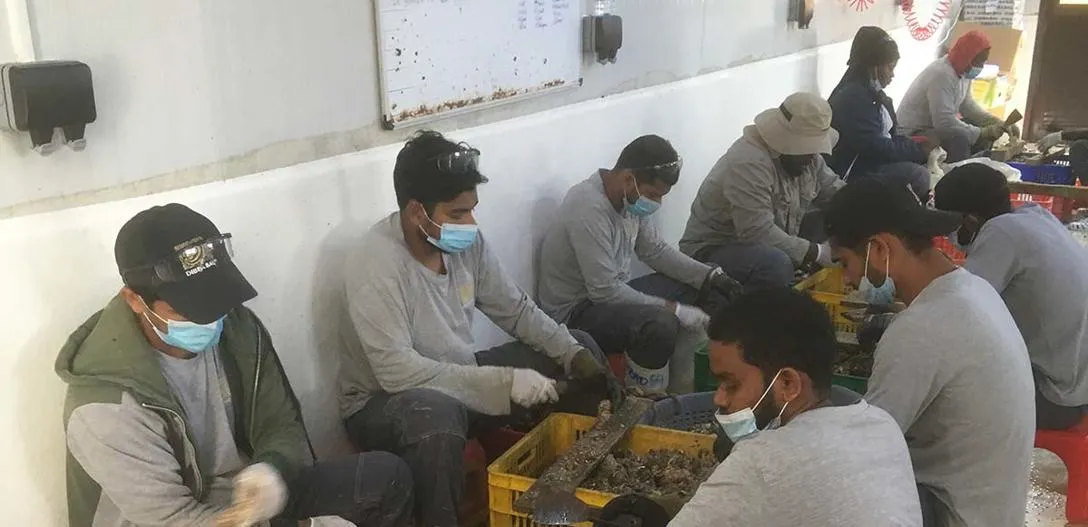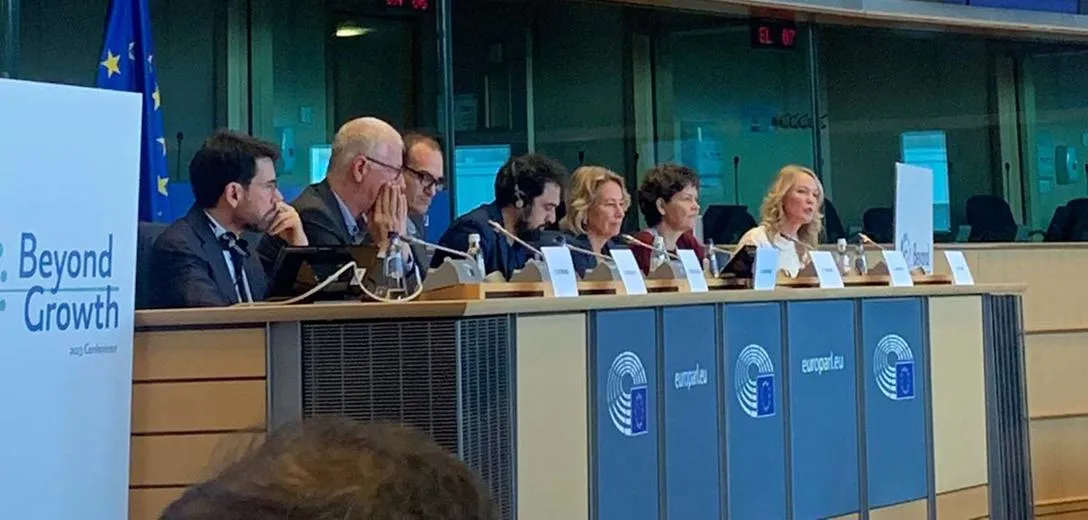Creating a new model to achieve Food Justice by consuming less

Dr Ingrid Kelling is Assistant Professor of Sustainable and Ethical Seafood at the Lyell Centre for Earth and Marine Sciences, a Global Research Institute at Heriot-Watt University and Director of the Global Centre for Social Sustainability in Seafood Supply.
Planet Earth, and the life within it, needs our help. After centuries of growing demand, excess production and overconsumption, we are now in state of ecological overshoot that desperately needs reined in.
As an expert on worker welfare in the fisheries sector, particularly its governance and the role of governments and corporations to safeguard human rights, I am keenly aware of how inequity and injustice within food systems continues to undermine global progress towards a more sustainable future. Overfishing, biodiversity loss, climate change and labour exploitation – all in pursuit of additional gains from the ‘Blue Economy' – are systemic issues based on valuing profit over nature and human life. As we continue to plough on with an unsustainable ‘wants-based' ecosystem, we are at risk of disrupting the stability of the planet and society.
A concept gaining strength among academics and activists is to transform society by moving to a ‘beyond growth' economy. This hypothesis flips the current structure and argues that true prosperity can be accomplished when profit maximisation, accumulation and responding to every human desire in the western world, are no longer the goals. Instead, in a ‘beyond growth' society, our fragile ecosystem currently dependent on planetary overreach and the abuse and mistreatment of underpaid workers is replaced by a fair, equitable global community that values sufficiency, efficiency, solidarity, distribution, regeneration and justice.
What does ‘beyond growth' mean for the ocean economy?
We live on a blue planet with oceans and seas covering more than 70% of the Earth's surface. Oceans also serve as the foundation for much of the world's economy, supporting sectors such as tourism, fisheries and international transport, while regulating the climate, and supporting livelihoods and cultural identities.
I believe that a sustainable ocean economy that delivers human rights, improves wellbeing, guarantees inclusion and gender equity, and prioritises equal access and fair opportunity, is entirely achievable. But, to create fairness in the distribution of wealth and benefits from ocean resources, it requires a paradigm shift in legal and governance frameworks.
Current ocean policies are largely equity-blind, insufficiently developed or poorly implemented, which leads to exploitation – of fisheries resources and humans. Existing top-down governance ignores local contexts and social justice, and global supply chains are dominated by a few transnational corporations whose primary responsibility is to investors, not local people.

Building a wellbeing economy model
In a ‘beyond growth' economy, policies, institutions and businesses work with people and communities to ensure legislation and working conditions are framed in terms of human and ecological wellbeing, not in terms of economic growth. This leads to the scaling down of destructive and unnecessary production and instead focuses economic activity around securing human needs and wellbeing.
We cannot simply tweak current business practices to make them 'a little bit sustainable'.

To achieve food justice, a powerful tool to achieving broader social justice, the transformation of large-scale corporations and government structures are key to advancing systemic change to support a wellbeing economy for the future.
Here are six changes that are needed:
- Less is more. We are facing a choice between either a radically reduced material footprint, starting with wealthy nations, or climate disaster. Our system is based on satisfying our needs as consumers, but we can choose products that value people and the planet, and produce things we actually need. Let's also remember that sometimes not spending can have the largest impact.
- Equity drives decisions. When equity drives decisions in the blue economy it leads to human flourishment and environmental regeneration at the heart of fisheries and aquaculture production, limiting polluting and repurposing loss and waste.
- Partnering for change. Globally, the fisheries sector employs 120 million people with 97% in developing countries and 90% work in small-scale fisheries. Working together, the international community and organisations can valorise small-scale rather than industrial, for-profit production.
- Sharing decision-making power. Ocean governance is highly complex, but powerless stakeholders are almost always marginalised from decision making in both public and private governance. Participative decision-making processes that include worker voices can be integrated into all types of food governance.
- Alternative ownership structures. Organisations as we know them will likely have to change if they want to exist in the flourishing future, becoming employee, community, social, cooperative and steward-owned, and incentivising employees on social and environmental performance rather than profit and growth.
- Investing in the future. All stakeholders, even those “not in the room” (nature, community, non-human animals, future generations and more) need to be part of decisions.
Let's not grow, let's thrive.
More about this author
See moreIngrid is a renowned expert specialising in advancing fair and sustainable food systems worldwide. With over 20 years of experience, she founded and now directs the Fair Food Hub (www.fairfoodhub.org), which focuses on innovative and interdisciplinary approaches to addressing systemic inequities in global food systems, aiming to promote long-term positive change and wellbeing.
